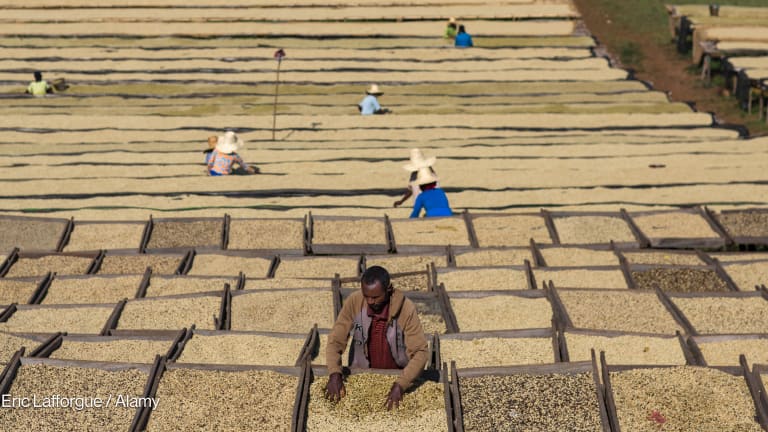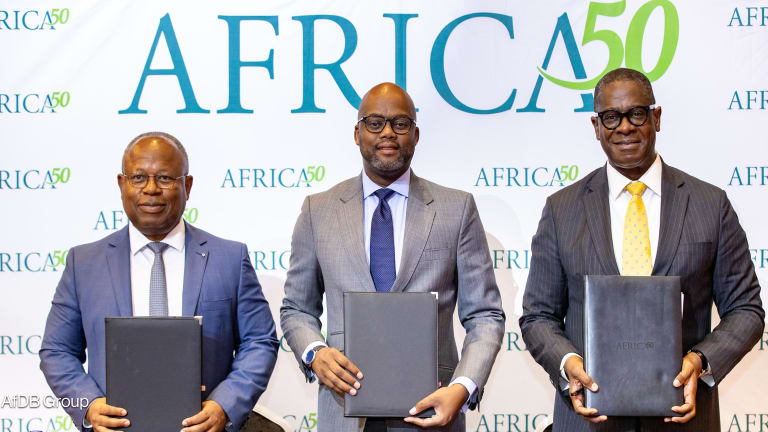FinDev Canada's rapid expansion amid Indo-Pacific policy push
The Canadian development finance institution will soon have quadrupled its capital as it expands geographies, staffing, and its investments. Its focus on climate, women's economic empowerment, and market development remain.
Canada’s development finance institution is set for a major expansion with the government nearly quadrupling the amount it has invested and a new directive to add the Indo-Pacific to the regions where it works. FinDev Canada, the youngest bilateral DFI, was founded in 2018 and given about 300 million Canadian dollars ($224.7 million, today) by the Canadian government to invest in private-sector development projects in sub-Saharan Africa and Latin America and the Caribbean. Now, with a new five-year plan, and two new budget allocations, FinDev is expanding to the Indo-Pacific region and hiring as it grows and makes more investments. “We are super excited about this capitalization” and “the opportunity to more firmly plant Canada in the development finance ecosystem,” Lori Kerr, CEO of FinDev Canada, told Devex. The new funding and expansion is a recognition by the government “that the development challenges around the emerging markets are huge and so we need to be better positioned, better capitalized to be able to respond more deeply to those development challenges,” she said. Back in 2021, the Canadian government approved an additional CA$300 million in financing for FinDev Canada but due to some delays in the budgeting and approvals process that money didn’t make it to the agency until the last few months. Another CA$750 was announced by Prime Minister Justin Trudeau in late 2022 as part of the country’s new Indo-Pacific strategy. That money will also start flowing to the agency and be allocated over the next few years. FinDev Canada has about $1 billion on its balance sheet and 100 staff, up from about $230 million and 35 employees two years ago. “We’re in that hockey stick kind of growth phase,” Kerr said, referencing the rapid exponential expansion. In November, the Canadian government approved a new five-year plan for the agency — FinDev Canada updates its five-year plan annually — including details on how the new funding would be spent, its new strategy, and expectations about its risk profile and profitability. Among substantial changes is the expansion to the Indo-Pacific region, where Kerr and her team have traveled over the last year to lay the groundwork, sign partnership agreements, and begin the process of identifying potential investments. The agency may open an office in the region this year and expects to make its first investment within about six months, but “there will be gradual growth,” Kerr said. In line with Canada’s Indo-Pacific strategy, the DFI will initially focus on Indonesia, Vietnam, the Philippines, and the Pacific Islands. In the next several years FinDev Canada hopes that its portfolio will be equally distributed across the geographies it works, with about a third in the Indo-Pacific region. “We don’t want it to water down the work that we’re doing because there are huge development challenges in our current markets as well as huge development challenges in the Indo-Pacific region,” Kerr said. FinDev Canada continues to have three primary impact goals that inform all of its investment decisions: climate action — including mitigation — adaptation, and nature; women’s economic empowerment and gender equality; and market development. FinDev Canada provides debt, equity, and blended finance solutions, though its limited pool of concessional capital is running dry so it is in talks with the Canadian government to provide more. FinDev works primarily across three sectors, with much of its funding going to financial services organizations such as local banks to provide them with more liquidity to lend more to local businesses. Especially during the pandemic years, financial services dominated FinDev Canada’s transactions, and while it will continue to play an important role, the agency wants to make more direct investments as well, Kerr said. Another priority sector is agribusiness and forestry, where it aims to address climate shocks and food security, she said. That includes investments similar to previous deals in Miro Forestry, a sustainable timber company operating in Ghana and Sierra Leone, and DanPer, an agricultural company in Peru. FinDev Canada, as part of a broader government commitment to the G7 Partnership for Global Infrastructure and Investment, will also focus on sustainable infrastructure. It won’t do billion-dollar deals — it’s a small agency — but will invest in medium-sized projects that are particularly important as more infrastructure is decentralized and in island nations, where investments are typically smaller, Kerr said. As part of its broader plans, FinDev Canada will also look for ways to mobilize more private capital, by bringing in more investors on individual projects and creating vehicles or instruments to attract commercial capital. FinDev Canada, for example, is working on GAIA, a $1.5 billion climate and blended finance platform that will use public funding and philanthropic capital to draw in more than $1 billion from private investors to remove barriers and fund climate projects in emerging markets.
Canada’s development finance institution is set for a major expansion with the government nearly quadrupling the amount it has invested and a new directive to add the Indo-Pacific to the regions where it works.
FinDev Canada, the youngest bilateral DFI, was founded in 2018 and given about 300 million Canadian dollars ($224.7 million, today) by the Canadian government to invest in private-sector development projects in sub-Saharan Africa and Latin America and the Caribbean. Now, with a new five-year plan, and two new budget allocations, FinDev is expanding to the Indo-Pacific region and hiring as it grows and makes more investments.
“We are super excited about this capitalization” and “the opportunity to more firmly plant Canada in the development finance ecosystem,” Lori Kerr, CEO of FinDev Canada, told Devex. The new funding and expansion is a recognition by the government “that the development challenges around the emerging markets are huge and so we need to be better positioned, better capitalized to be able to respond more deeply to those development challenges,” she said.
This story is forDevex Promembers
Unlock this story now with a 15-day free trial of Devex Pro.
With a Devex Pro subscription you'll get access to deeper analysis and exclusive insights from our reporters and analysts.
Start my free trialRequest a group subscription Printing articles to share with others is a breach of our terms and conditions and copyright policy. Please use the sharing options on the left side of the article. Devex Pro members may share up to 10 articles per month using the Pro share tool ( ).
Adva Saldinger is a Senior Reporter at Devex where she covers development finance, as well as U.S. foreign aid policy. Adva explores the role the private sector and private capital play in development and authors the weekly Devex Invested newsletter bringing the latest news on the role of business and finance in addressing global challenges. A journalist with more than 10 years of experience, she has worked at several newspapers in the U.S. and lived in both Ghana and South Africa.








